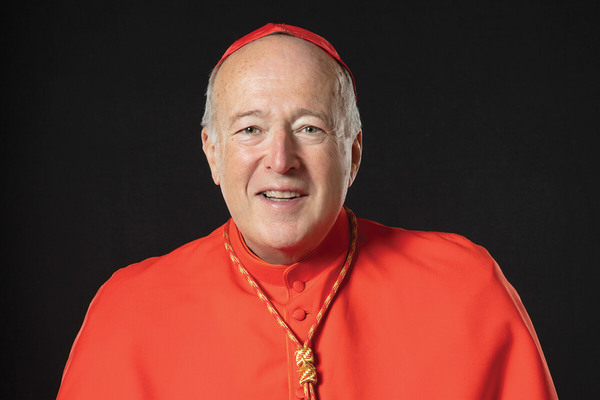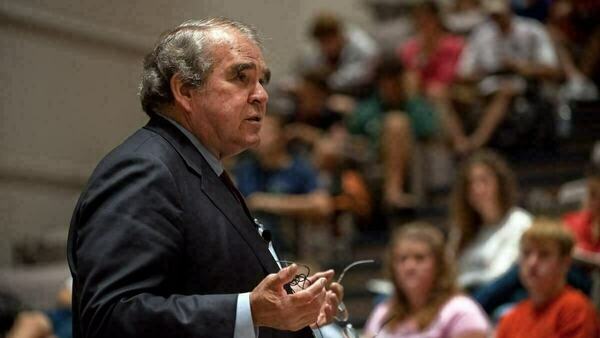Kroc Institute releases third report on Colombian Peace Agreement implementation of ethnic approach
Colombia is at the halfway point with the implementation of its 2016 peace accord, and data indicate there are serious challenges to achieving goals established to guarantee the rights of ethnic communities in the peace process.
A new report from the Peace Accords Matrix (PAM), part of the Kroc Institute for International Peace Studies in the Keough School of Global Affairs at the University of Notre Dame, outlines the limitations and weaknesses, as well as progress and successes, of implementing ethnic commitments within the Colombian context. “A Call to Action: Third Special Report on the Implementation Status of the Colombian Final Peace Accord’s Ethnic Approach” was officially released at events held Sept. 10 in Cali, Colombia, and Sept. 17 in Washington, D.C. At both gatherings, speakers presented an overview of the report’s findings and facilitated discussions on lessons learned and best practices for fostering inclusive peacebuilding.

“Lasting peace in Colombia requires understanding and addressing the different and disproportionate impacts of the armed conflict on ethnic groups,” said Ángela María Ramírez Rincón, executive director of PAM’s Barometer Initiative in Colombia, at the Sept. 17 launch event.
“We’ve found a significant gap between general implementation of the accord and implementation of the ethnic chapter and ethnic approach. Obviously, this is of great concern — but as the report highlights, there are action steps offered to close this gap. This gives us hope,” she said.
The report offers both quantitative and qualitative analysis, with recommendations to guide the second half of the implementation period for the ethnic approach and to achieve higher rates of implementation. The value of its findings and recommendations enabled PAM staff to present to the Department of State and offer briefings to congressional staffers during their time in Washington, D.C., last month.
Obstacles include a lack of effective mainstreaming in planning and programmatic efforts, slow implementation of security guarantees for ethnic communities and a failure to apply prior consultation processes for ethnic groups. A legacy of state neglect, combined with suffering caused by prolonged conflict and violence against these communities, calls for sustained efforts to rebuild trust and address grievances.
“Implementation of the Final Accord’s ethnic commitments provides a historic opportunity to recognize and guarantee the rights of ethnic communities in Colombia who have experienced disproportionate and identity-specific impacts of the armed conflict,” said Josefina Echavarría Álvarez, PAM’s director.
She noted that the United States and Mexico have declared their commitment and support since fall 2022.
“Both countries have pledged technical and financial resources to bring the promises of ethnic equality and authentic development to the Indigenous, Afro and Roma peoples in Colombia,” Echavarría Álvarez said. “We hope this support translates into considerable gains, such as better coordination and the incorporation of ethnic lenses in all plans, programs, projects and forums created by the accord.”
PAM researchers found the need to strengthen protection of ethnic communities, especially among women leaders, and to implement landmine removal in the territories. The report emphasizes the importance of justice and reparations for these communities through participation in the Special Jurisdiction for Peace and culturally sensitive searches for missing persons. In addition, it encourages international and governmental support to provide financial and technical resources for restorative justice projects, and to ensure ethnic communities actively contribute to peacebuilding efforts.
“Though implementation of the Final Accord’s ethnic stipulations are not where they should be at this time, the Kroc Institute has outlined several actions that could, in the short and medium term, expedite and enhance implementation,” Ramírez Rincón said. “Advancing these commitments would empower ethnic communities to realize their full potential and contribute to a more equitable and just peace, allowing society as a whole to prosper.”
Alongside the full report, the Kroc Institute has also produced a policy brief highlighting key points of the report. The institute has released eight prior reports on the status of overall implementation, as well as four reports on implementation of gender provisions, two reports on implementation of ethnic provisions, a special report on the implementation of the Final Agreement from the perspective of victims’ rights, and a special report on the environmental challenges. All of PAM’s reports are available here.
Originally published by at kroc.nd.edu on Oct. 24.
Contact: Tracy DeStazio, associate director of media relations, 574-631-9958 or tdestazi@nd.edu
Latest ND NewsWire
- Notre Dame receives $2.5 million gift from Coca-Cola to expand entrepreneurship programs into FIFA World Cup 26 host citiesThe Coca-Cola Company in North America has awarded a $2.5 million gift to the University of Notre Dame’s Urban Poverty and Business Initiative (UPBI). The initiative brings together universities and nonprofit organizations committed to alleviating poverty and helping low-income and underprivileged individuals launch and grow sustainable businesses. The gift will enable UPBI, housed within the University’s Keough School of Global Affairs, to expand its network of partner organizations across the United States and into Canada, including cities that will host the FIFA World Cup 26.
- Notre Dame, Beacon Health System announce new, multiyear research collaborationThe University of Notre Dame and Beacon Health System have announced a new, multiyear research collaboration. Through this agreement, Notre Dame and Beacon will jointly develop collaborative, health-focused research projects that are of interest to both organizations, particularly in the areas of oncology and health data.
- Cardinal Robert McElroy, archbishop of Washington, DC, to speak at Notre Dame Forum event on ‘Healing Our National Dialogue and Political Life’Cardinal Robert McElroy, archbishop of the Archdiocese of Washington, D.C., will join University President Rev. Robert A. Dowd, C.S.C., for a conversation titled “Healing Our National Dialogue and Political Life” at 4 p.m. Friday (Oct. 17) in Room 215/216, McKenna Hall, as part of the 2025-26 Notre Dame Forum on the theme “Cultivating Hope.” This event is free and open to the public.
- ND experts offer insight on ‘Dilexi Te’On Thursday (Oct. 9), Pope Leo XIV issued his first major document, “Dilexi Te” (“I Have Loved You”), addressed to all Christians and divided into five chapters. Below, experts from the University of Notre Dame’s College of Arts and Letters, Keough School of Global Affairs, Institute for Social Concerns and the Institute for Educational Initiatives respond to the document.
- Notre Dame’s Kellogg Institute partners with Vanderbilt University to launch 2025-26 democracy surveyThe University of Notre Dame’s Kellogg Institute for International Studies and Vanderbilt University’s Center for Global Democracy are partnering to advance one of the world’s leading surveys on attitudes toward democracy. Starting in October, the Center for Global Democracy, with support from the Kellogg Institute, will conduct the 2025-26 round of the AmericasBarometer, which tracks public opinion on democracy in 20 countries across the Americas.
- Notre Dame to award 2026 Evangelium Vitae Medal to Wm. David Solomon, founding director of the de Nicola Center for Ethics and CultureThe de Nicola Center for Ethics and Culture at the University of Notre Dame announced that the late Wm. David Solomon, associate professor of philosophy emeritus and founding director of the center, has been named the recipient of the 15th annual Notre Dame Evangelium Vitae Medal, the nation’s most important award for heroes of the pro-life movement. The medal will be presented to Solomon’s family at a special Mass and dinner May 1, 2026, at Notre Dame.













